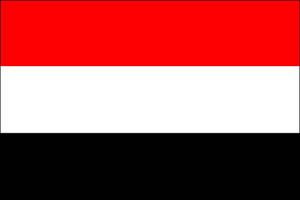Language/Sanaani-arabic/Grammar/Questions
Hi Sanaani Arabic learners! 😊
In this lesson, we will learn how to ask questions in Sanaani Arabic. Asking questions is an important aspect of any language as it allows us to seek information or clarification. Questions can be formed in different ways and we will explore these in this lesson. We will also look at some useful words and phrases that we can use to ask questions. 🤔
Consider broadening your understanding by checking out these related lessons: Conditional Mood & Plurals.
Basic Questions[edit | edit source]
The most common way of forming a question in Sanaani Arabic is by adding a question particle at the end of a sentence. This particle is "هل" (hal) and it is equivalent to "do/does" or "is/are" in English. For example:
| Sanaani Arabic | Pronunciation | English |
|---|---|---|
| هذا بيت | hadha bayt | This is a house. |
| هل هذا بيت؟ | hal hadha bayt? | Is this a house? |
Notice how the addition of "هل" (hal) at the end of the sentence changes it into a question. This type of question is called a yes/no question as it can be answered with "نعم" (na'am) for yes or "لا" (la) for no. 🏠
Another way of forming a question in Sanaani Arabic is by using question words. These are words such as "من" (man) for "who", "ما" (ma) for "what", "أين" (ayna) for "where", "متى" (mataa) for "when" and "كم" (kam) for "how much/many". For example:
| Sanaani Arabic | Pronunciation | English |
|---|---|---|
| ما هذا؟ | ma hadha? | What is this? |
| من الشخص الذي رأيته؟ | man al-shakhs alladhi ra'aytuhu? | Who is the person you saw? |
| أين المطعم؟ | ayna al-mat'am? | Where is the restaurant? |
| متى تسافر؟ | mataa tasafar? | When are you traveling? |
| كم عمرك؟ | kam 'umruka? | How old are you? |
Notice how the question words come at the beginning of the sentence and are followed by the verb and the subject. This type of question cannot be answered with a simple "yes" or "no" as it requires more information. 🤔
Useful Phrases[edit | edit source]
To further enhance your ability to ask questions, here are some useful phrases that you can use. Remember, practice makes perfect! 💪
- "هل تتكلم الإنجليزية؟" (hal tatakallam al-'injiliziya?) - Do you speak English?
- "هل يمكنني المساعدة؟" (hal yumkinuni al-musa'adah?) - Can I help you?
- "ما اسمك؟" (ma ismuka?) - What is your name?
- "ماذا تعمل؟" (mada ta'mal?) - What do you do?
- "أين أنت من؟" (ayna anta min?) - Where are you from?
Dialogue[edit | edit source]
Here is a dialogue to help you see these words and phrases in context:
- Person 1: "هل تتكلم الإنجليزية؟" (hal tatakallam al-'injiliziya?) - Do you speak English?
- Person 2: "لا، لا أتكلم الإنجليزية" (La, la 'atakallam al-'injiliziya) - No, I don't speak English.
- Person 1: "أين المحطة؟" (ayna al-mahattah?) - Where is the station?
- Person 2: "المحطة بجوار المستشفى" (al-mahattah bijawar al-mustashfa) - The station is next to the hospital.
Sources[edit | edit source]
➡ If you have any questions, please ask them in the comments section below.
➡ Feel free to edit this wiki page if you think it can be improved. 😎

